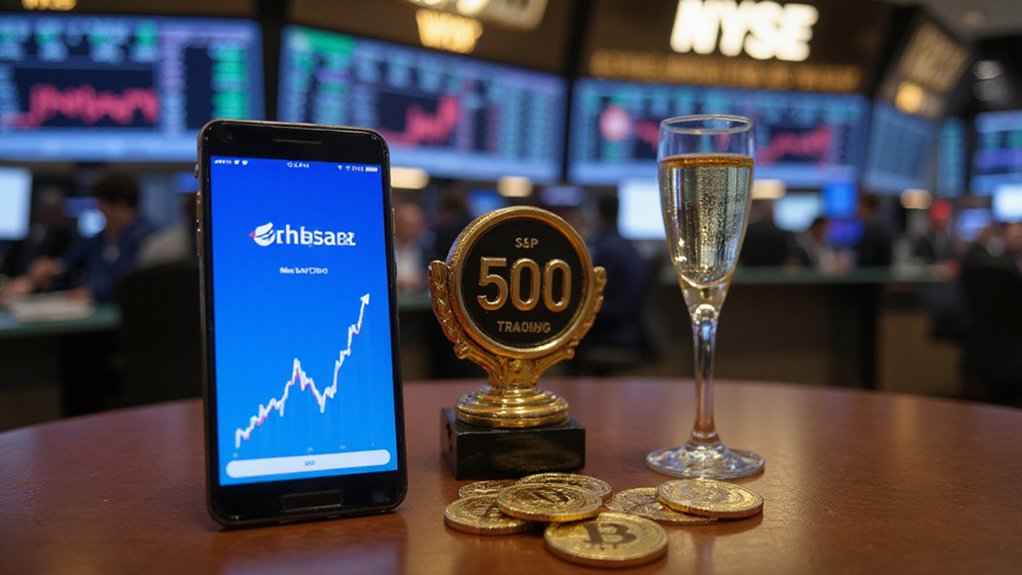A watershed moment for cryptocurrency’s mainstream acceptance arrived with the announcement that Coinbase, the largest U.S. crypto exchange, will join the prestigious S&P 500 index effective May 19, 2025. Supplanting Discover Financial Services in the benchmark index, Coinbase’s inclusion represents a remarkable evolution since its direct listing in April 2021—a mere four years from market debut to blue-chip status, a trajectory that would have seemed implausible to traditional finance gatekeepers not long ago.
The market’s reaction proved predictably enthusiastic, with shares surging approximately 25% post-announcement. The company’s stock soared 24% on Tuesday following the news of its S&P 500 addition. Coinbase’s stock ascended from April lows of $142 to roughly $257, demonstrating how index inclusion can transform investor sentiment almost overnight. The price action followed a textbook inverse head and shoulders pattern that technicians had been monitoring with interest since March.
This institutional embrace carries substantial implications beyond mere symbolism. Index funds tracking the S&P 500—representing trillions in passive investment—must now incorporate Coinbase into their holdings, creating significant buying pressure that could propel the stock toward resistance levels at $273 and potentially $330. Meanwhile, chartists have identified $208 as a key support level that may attract buyers on any retracements. The decision was made by an anonymous committee at S&P Dow Jones Indices rather than purely financial criteria.
Coinbase’s S&P inclusion unleashes trillions in passive investment firepower, potentially driving shares beyond $273 while establishing $208 as critical support.
The company’s recent agreement to acquire Deribit for $2.9 billion underscores its expansionist ambitions despite recent earnings that fell short of Wall Street expectations. Such strategic maneuvers, coupled with S&P 500 validation, suggest Coinbase is positioning itself as more than merely a crypto exchange—it’s becoming an established financial institution. The company’s legal standing was further solidified by a favorable court ruling against the SEC, reinforcing its legitimacy in the regulatory landscape.
For the broader cryptocurrency ecosystem, Coinbase’s elevation represents legitimization by proxy. Bitcoin and major cryptocurrencies notched modest gains following the announcement, reflecting the symbiotic relationship between mainstream acceptance of crypto-adjacent businesses and digital asset valuations themselves.
The inclusion ultimately signals a maturation point where the financial establishment has begrudgingly acknowledged what crypto advocates have long maintained: blockchain-based financial services have transcended their fringe origins to become fixtures in the modern economic landscape.









